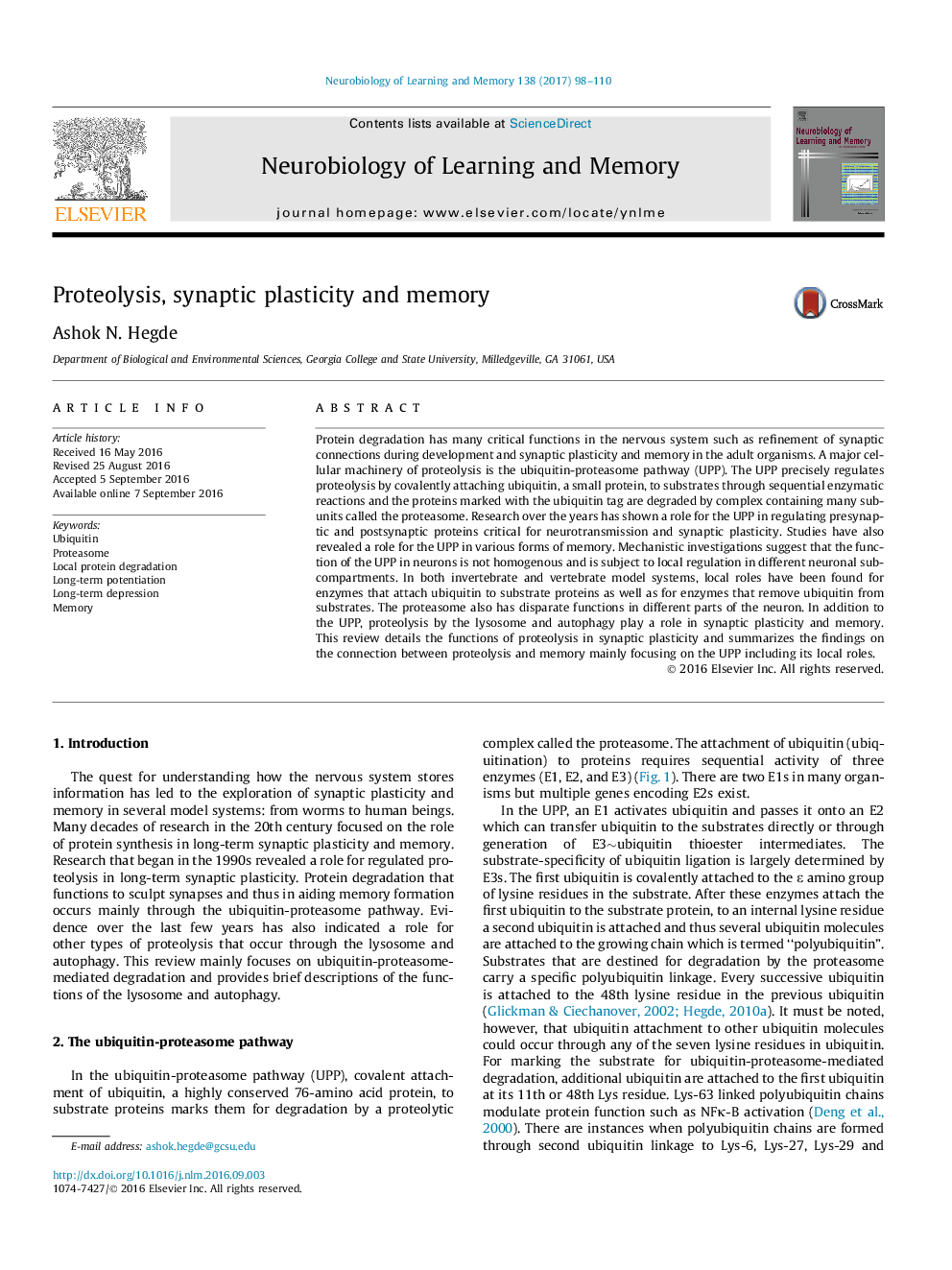| Article ID | Journal | Published Year | Pages | File Type |
|---|---|---|---|---|
| 5043324 | Neurobiology of Learning and Memory | 2017 | 13 Pages |
â¢Proteolysis plays a role in changing synaptic strength.â¢Ubiquitin-proteasome pathway has a major role in synaptic plasticity and memory.â¢Local regulation of proteolysis is critical for synaptic plasticity.â¢Protein degradation in neurons also occurs through the lysosome and autophagy.â¢Dysregulation of proteolysis could lead to diseases and disorders of the brain.
Protein degradation has many critical functions in the nervous system such as refinement of synaptic connections during development and synaptic plasticity and memory in the adult organisms. A major cellular machinery of proteolysis is the ubiquitin-proteasome pathway (UPP). The UPP precisely regulates proteolysis by covalently attaching ubiquitin, a small protein, to substrates through sequential enzymatic reactions and the proteins marked with the ubiquitin tag are degraded by complex containing many subunits called the proteasome. Research over the years has shown a role for the UPP in regulating presynaptic and postsynaptic proteins critical for neurotransmission and synaptic plasticity. Studies have also revealed a role for the UPP in various forms of memory. Mechanistic investigations suggest that the function of the UPP in neurons is not homogenous and is subject to local regulation in different neuronal sub-compartments. In both invertebrate and vertebrate model systems, local roles have been found for enzymes that attach ubiquitin to substrate proteins as well as for enzymes that remove ubiquitin from substrates. The proteasome also has disparate functions in different parts of the neuron. In addition to the UPP, proteolysis by the lysosome and autophagy play a role in synaptic plasticity and memory. This review details the functions of proteolysis in synaptic plasticity and summarizes the findings on the connection between proteolysis and memory mainly focusing on the UPP including its local roles.
